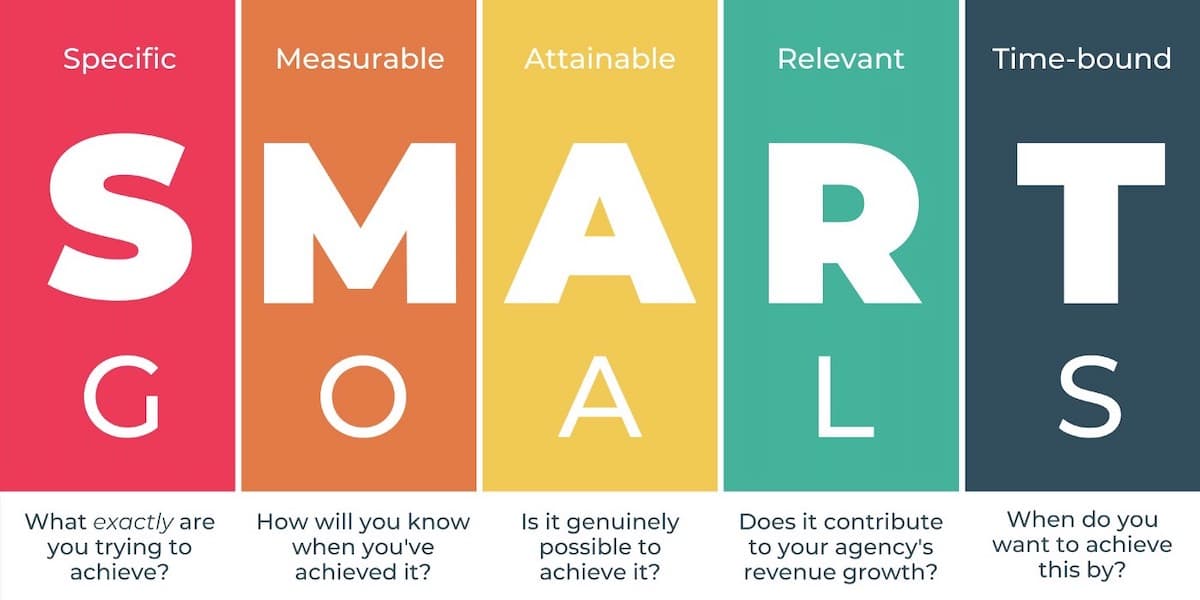How to improve self-management skills
Self-management is being able to take control of your own actions, decisions, and behaviors, and it is an important skill to have both professionally and personally. Practicing self-management skills enables individuals to effectively prioritize tasks, set goals, stay organized, improve project management skills, and maintain a healthy work-life balance. For a project manager especially, self-management skills help contribute to project, employee, and o rganizational success.

The importance of self-management skills in project management
Self-management skills are indispensable. They play an important role in ensuring not only the success of projects but also in achieving personal and professional growth. The good news is that self-management skills are not inherited traits — they can be learned, developed, and bettered over time.
Why project management matters
Project management refers to planning, executing, and monitoring a project's progress from start to finish, and effective project management ensures that resources are used efficiently, goals are met, and customers and stakeholders are satisfied. This is important for the success and growth of any business or organization.
Benefits of self-management skills in project management:
- Better time management and increased productivity
- Enhanced leadership abilities
- Improved organizational skills
- Sense of achievement
- Reduced stress
- Enhanced emotional intelligence and self-awareness
- Better work-life balance
- Faster career development
8 practical tips to improve self-management skills
Now that we've established the importance of self-management skills in project management, let's explore eight practical tips to improve on these skills and apply them to your everyday life.
1. Identify your strengths, weaknesses, and emotions
Understanding your strengths and weaknesses is the first step towards improving self-management. Recognize where you excel and where you need improvement. Use your strengths and work on your weaknesses to harness your full potential and achieve greater success in your professional and personal lives.

Self-awareness is key here, and it's important to identify not only your strengths and weaknesses but your emotions, too. For example, fear can be an emotional weakness that has a significant impact on your decision-making and overall effectiveness in managing projects. When fear takes hold, it often leads to hesitation and can affect your ability to make timely and confident choices.
To overcome the paralyzing effects of fear, you need to acknowledge and confront these emotions head-on. Start by pinpointing the source of your fear within the context of your projects. Is it the fear of failure, rejection, or the unknown? Once identified, you can develop strategies to manage and mitigate these fears.
At the same time, if you recognize your strengths, you can use them to your advantage, boosting your confidence and decision-making powers. If you're great at problem-solving or effective communication, you can use these strengths to address challenges, encourage team discussions, and navigate complicated projects.
2. Plan ahead
Set clear project goals and create a timeline with deadlines. This not only helps you stay organized but also provides a sense of direction, making it easier to track progress. Starting with a daily schedule is an excellent way to start your day, and you can use tools such as to-do lists, project management software, and calendars to keep tasks and priorities.

Here are a few tips when creating your daily schedule:
- Begin each day by identifying the most important tasks and goals related to your project.
- Allocate specific time blocks for each task or goal.
- Ensure that the daily tasks and goals align with your project's overall timeline.
- Leave some flexibility in your schedule for unexpected challenges or opportunities that may arise during the day.
- Regularly review your daily schedule to assess your progress.
3. Be S.M.A.R.T
Set S.M.A.R.T goals. S.M.A.R.T goals are Specific, Measurable, Achievable, Relevant, and Time-bound. They provide a clear and actionable roadmap for projects. These goals ensure that your efforts are targeted and have a purpose, improving your chances of completing projects efficiently.
The S.M.A.R.T goal framework improves self-management skills by providing clarity, focus, and accountability, guiding individuals to effectively prioritize and execute tasks within projects.
Example of a s.m.a.r.t goal in project management:
- Specific: Increase client satisfaction ratings by 15% in the next quarter by improving response times to client inquiries.
- Measurable: Client satisfaction ratings will be measured using a standardized survey with a 0-100 scale.
- Achievable: Using better communication methods and providing additional training to the client support team, reducing response times and improving client satisfaction becomes achievable.
- Relevant: Improving client satisfaction aligns with the organization's overall goal of bettering customer relations and retaining clients.
- Time-Bound: This goal will be achieved within the next quarter, with monthly progress assessments to make sure we stay on track.

4. Focus and prioritize
Avoiding distractions and maintaining focus is an important part of developing self-management skills in project management. Smartphones, social media, and other interruptions can affect productivity and project progress. Doing away with these distractions allows you to give your full attention to the task at hand, resulting in higher-quality work.

Plus, you should consider adopting a "one task at a time" approach. Multitasking often leads to decreased productivity, as it divides your attention and can result in errors or overlooked details. Prioritizing your workload ensures that you tackle the most important tasks first, increasing the likelihood of meeting project milestones and deadlines effectively.
5. Take breaks
In a high-pressure work environment, it's easy to fall into the trap of continuous work, believing it will boost productivity. However, this approach can lead to diminishing returns, increased stress, and mental fatigue.
Taking short breaks provides your brain with the much-needed opportunity to recharge. Stepping away from your desk, stretching your legs, or going for a brief walk not only rejuvenates your mind but also helps prevent burnout. Physical activity, even if it's just a short walk around the office, can increase blood flow, oxygenate your brain, and stimulate creativity.

Try to manage your time using the Pomodoro Technique.
6. Adopt a healthy lifestyle
Self-management is not confined to the workplace — it encompasses your entire lifestyle. Engaging in regular exercise, maintaining a balanced diet, and practicing self-care are essential components of better self-management.

Regular physical activity, such as exercise, not only improves your physical health but also has an impact on your mental well-being. It releases endorphins, reduces stress hormones, and enhances your overall mood.
Proper nutrition provides sustained energy, sharpens cognitive function, and boosts your immune system. When you eat well, you're better prepared to handle stress and maintain consistent energy levels throughout your day.
Self-care encompasses a wide range of practices, from mindfulness and meditation to hobbies and relaxation techniques. These activities are vital for reducing stress, promoting mental clarity, and fostering emotional balance.
These self-management strategies ensure that you maintain not only your physical health but also your mental and emotional well-being. A healthy body and mind serve as a strong foundation for effectively handling challenges and stress, allowing you to excel in your personal and professional self-management goals.
7. Reward yourself
Celebrating achievements, regardless of their size, is a powerful self-management technique that cultivates a positive mindset and sustains motivation. When you acknowledge your accomplishments, you create a feedback loop of positivity that fuels your self-management journey.
These rewards can be as simple as a moment of self-appreciation or treating yourself to something you enjoy, like a favorite meal or leisure activity. Associating a positive outcome with your efforts reinforces the behavior that led to success, making it more likely to become a habit.

Also, recognizing achievements provides a sense of fulfillment and accomplishment. It serves as a constant reminder of your progress, which can be especially reassuring during challenging times in your project management tasks.
This practice not only boosts your self-esteem but also bolsters your self-management skills by creating a sense of intrinsic motivation. Over time, this motivation becomes a driving force that propels you towards self-improvement and the attainment of your project management goals.
8. Continue learning
Continuous learning is a staple of bettering your self-management skills. After all, staying stagnant in your cognitive ability can lead to a professional slump and hinder your capacity to effectively manage projects in an increasingly complex and competitive environment. Therefore, it's important to commit to ongoing learning and development.
Regularly updating your knowledge of project management techniques, tools, and industry trends ensures that you remain ahead of others in your field. This not only sharpens your skills but also equips you to tackle new challenges and seize emerging opportunities before others.

What are some ways you can stay updated on the latest happenings?
- Studying through online courses and certifications
- Joining professional associations
- Attending industry conferences and seminars
- Reading the latest books, journals, and publications
Ultimately, the commitment to lifelong learning is an investment in your self-management skills, empowering you to adapt, thrive, and lead in project management.
Conclusion
Self-management skills are important in effective project management. By understanding their importance in a professional context, recognizing that they can be learned and improved, and implementing these practical tips, you can become a more proficient and successful project manager.
The benefits are not only seen in the workplace but also extend to your personal life, contributing to reduced stress, improved work-life balance, better time management, and accelerated career growth. Cultivate these skills, and watch your professional journey grow.








